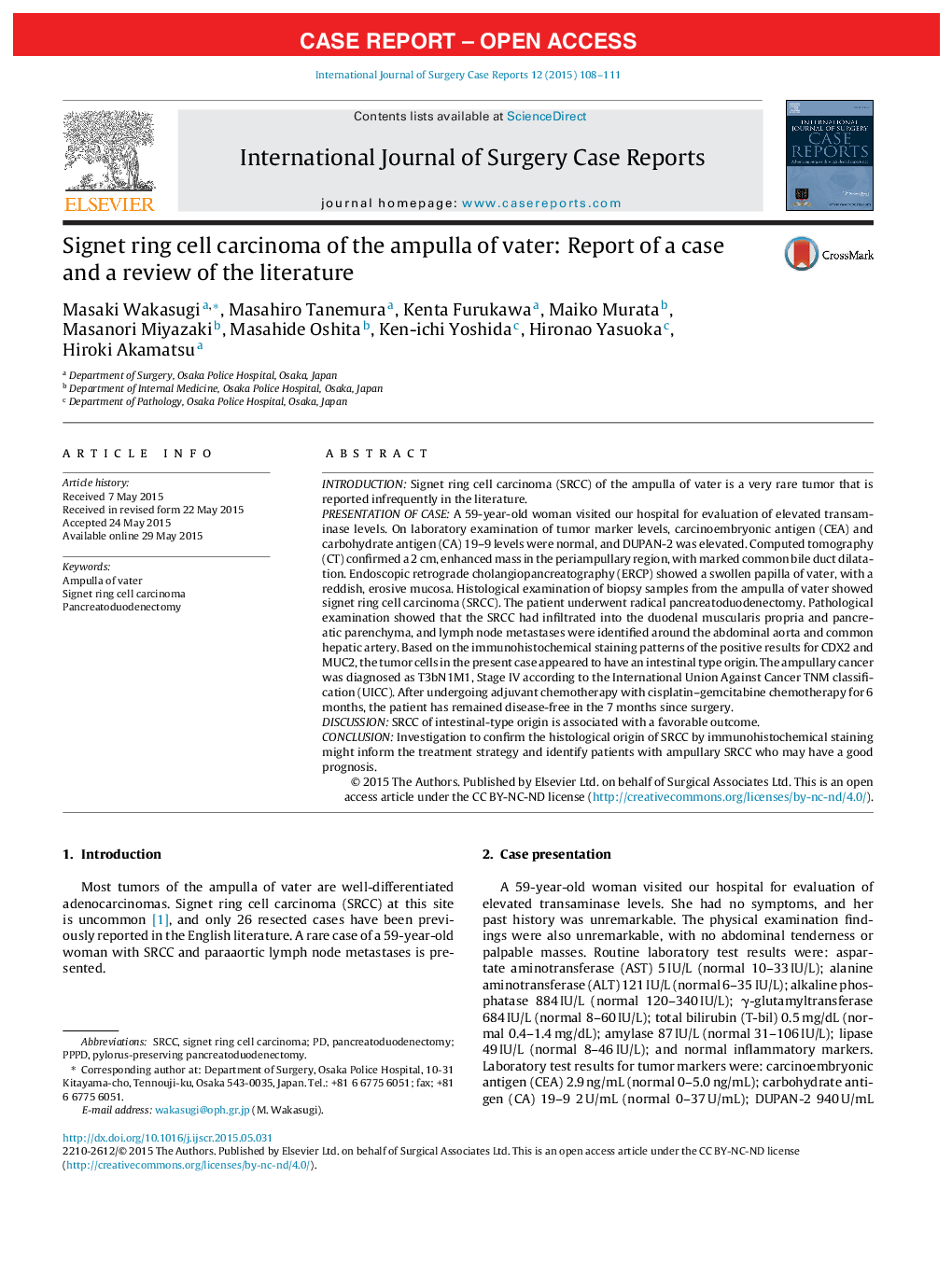| کد مقاله | کد نشریه | سال انتشار | مقاله انگلیسی | نسخه تمام متن |
|---|---|---|---|---|
| 4288697 | 1612103 | 2015 | 4 صفحه PDF | دانلود رایگان |
• Signet ring cell carcinoma in the ampulla of vater is extremely uncommon.
• Investigation to confirm the histological origin of signet ring cell carcinoma by immunohistochemical staining might inform the treatment strategy and identify patients with ampullary signet ring cell carcinoma who may have a good prognosis.
IntroductionSignet ring cell carcinoma (SRCC) of the ampulla of vater is a very rare tumor that is reported infrequently in the literature.Presentation of caseA 59-year-old woman visited our hospital for evaluation of elevated transaminase levels. On laboratory examination of tumor marker levels, carcinoembryonic antigen (CEA) and carbohydrate antigen (CA) 19–9 levels were normal, and DUPAN-2 was elevated. Computed tomography (CT) confirmed a 2 cm, enhanced mass in the periampullary region, with marked common bile duct dilatation. Endoscopic retrograde cholangiopancreatography (ERCP) showed a swollen papilla of vater, with a reddish, erosive mucosa. Histological examination of biopsy samples from the ampulla of vater showed signet ring cell carcinoma (SRCC). The patient underwent radical pancreatoduodenectomy. Pathological examination showed that the SRCC had infiltrated into the duodenal muscularis propria and pancreatic parenchyma, and lymph node metastases were identified around the abdominal aorta and common hepatic artery. Based on the immunohistochemical staining patterns of the positive results for CDX2 and MUC2, the tumor cells in the present case appeared to have an intestinal type origin. The ampullary cancer was diagnosed as T3bN1M1, Stage IV according to the International Union Against Cancer TNM classification (UICC). After undergoing adjuvant chemotherapy with cisplatin–gemcitabine chemotherapy for 6 months, the patient has remained disease-free in the 7 months since surgery.DiscussionSRCC of intestinal-type origin is associated with a favorable outcome.ConclusionInvestigation to confirm the histological origin of SRCC by immunohistochemical staining might inform the treatment strategy and identify patients with ampullary SRCC who may have a good prognosis.
Journal: International Journal of Surgery Case Reports - Volume 12, 2015, Pages 108–111
